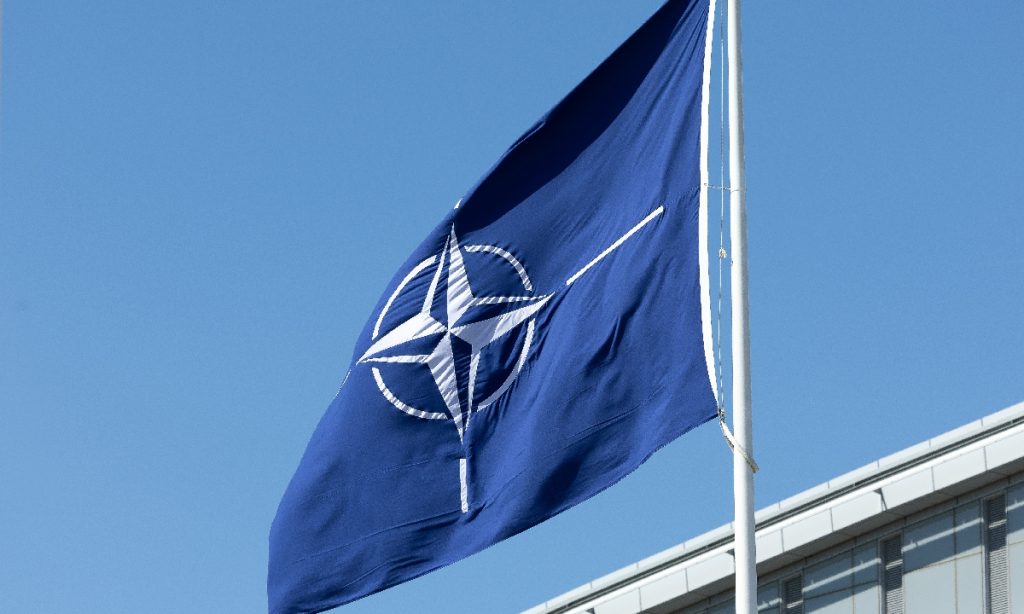Upcoming NATO summit eyes defense budget increase, 'likely to demonstrate transatlantic rift'

A NATO summit is set to be held on Tuesday and Wednesday in the Dutch city of the Hague, as the US pushes its allies to sharply increase their defense spending to 5 percent of their gross domestic product (GDP).
However, the goal has not only faced diverging reactions inside the bloc, but also prompted hundreds of protesters who took to the streets of The Hague on Sunday to show their discontent at NATO's climbing defense spending and a possible war with Iran, European portal euronews.com reported.
Even if the NATO summit agrees on the target as a symbol of unity, it will be difficult to deliver, Chinese observers said, adding that the upcoming summit is likely to once again demonstrate the transatlantic rift as NATO becomes obsolete and irrelevant, and it is no wonder that the leaders of Japan and South Korea have decided to skip it.
According to CNBC, the 5 percent figure is made up of 3.5 percent of GDP that should be spent on "pure" defense, with an extra 1.5 percent of GDP going to security-related infrastructure, such as cyber warfare capabilities and intelligence.
NATO members on Sunday signed off on this budget increase pledge, but Spain has struck a deal to be exempt from it.
Lü Xiang, a research fellow on US studies at the Chinese Academy of Social Sciences, doubted if the 5 percent pledge can ever be delivered.
Some NATO members don't even meet the 2 percent threshold that was agreed over a decade ago. While they might pledge to increase defense spending, whether these promises materialize will be the key question, CNBC reported.
The US is the core of NATO, but the incumbent US administration's policy is far from inclined to cooperate with traditional allies, as it makes no commitment to its allies and does not rely on them in international affairs, Lü told the Global Times on Monday.
Lü cited the example of the US' handling of the Israel-Iran conflict. As Germany, the UK and France engaged with Iran on Friday in a bid to avoid further escalation, and saying Iran is fundamentally willing to continue talks, per Deutsche Welle, the US launched strikes against the country's nuclear facilities the following day - "very likely without communication with its transatlantic allies," the expert said.
Without security commitments or strategic coordination, "the remaining value of NATO for the US is as a buyer of US arms," and the increase in defense budget will highly likely flow into the US given Europe's less than complete defense industry, Lü said.
"Hopefully, Trump is not going to leave early like he did from the recent G7 meeting in Canada," Jamie Shea, a former NATO official, told Deutsche Welle.
In the Hague, as was the case in Canada, there will be no lengthy communique, only short statements about new commitments, Politico reported.
There is widely existing anxiety within NATO as the alliance is becoming obsolete and irrelevant, Lü said, using the term "zombification" to describe this alliance born in the Cold War that is no longer compatible with the current global landscape.
Sources related to NATO earlier revealed to Nikkei that Trump wants to hold a meeting with leaders from Japan, South Korea, Australia and New Zealand, the so-called four Indo-Pacific nations (IP4), during the NATO summit in the Netherlands.
But that IP4 meeting is unlikely and leaders of Japan and South Korea may not show up at the summit.
Japanese Prime Minister Shigeru Ishiba has cancelled plans to attend the NATO summit in The Hague this week, the Foreign Ministry said in a statement on Monday. The ministry said only that "various circumstances" had led to the cancellation.
Japan has also scrapped the planned July 1 meeting in Washington of foreign and defense ministers (known as "2+2") with the US, media reported Sunday, citing an unofficial overture from Washington requesting that Tokyo increase its defense spending to 3.5 percent of GDP.
South Korean President Lee Jae-myung ultimately determined that "it was simply not feasible" to attend in person, citing "a confluence of urgent domestic issues and growing instability in the Middle East," the Chosun Daily reported Monday.
Da Zhigang, director of the Institute of Northeast Asian Studies at the Heilongjiang Provincial Academy of Social Sciences, told the Global Times that the US has been exploiting both its allies' security dependence on Washington and their psychological need for greater security assurances in this volatile landscape full of tensions and disputes.
However, with "America first" on its mind, the current administration is not interested in providing substantial benefits, nor will it respond to Japan and South Korea's needs to communicate on other topics such as tariffs, the expert said.